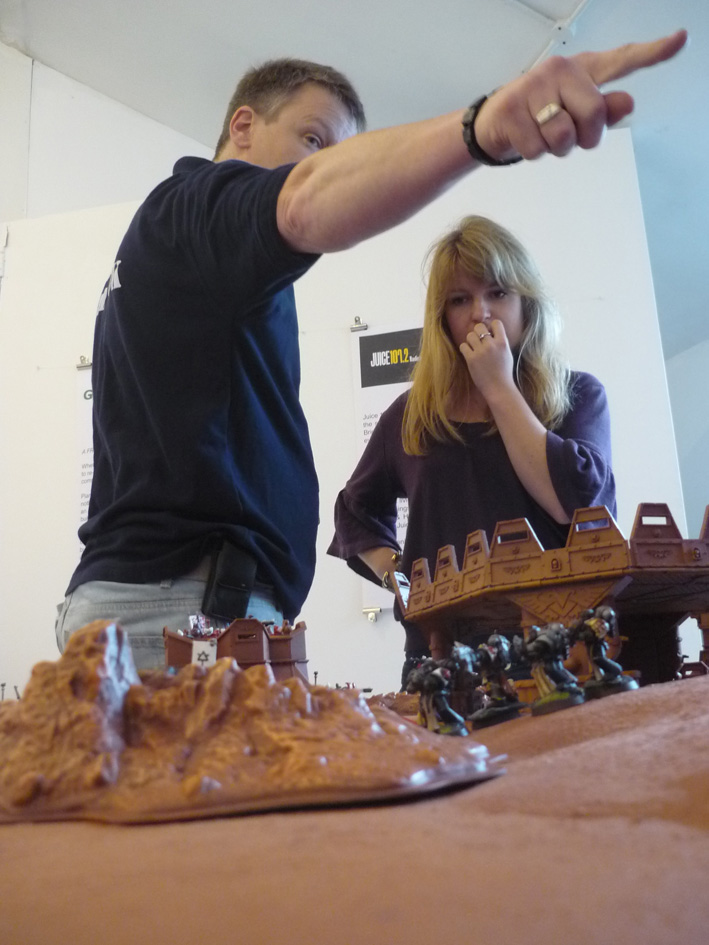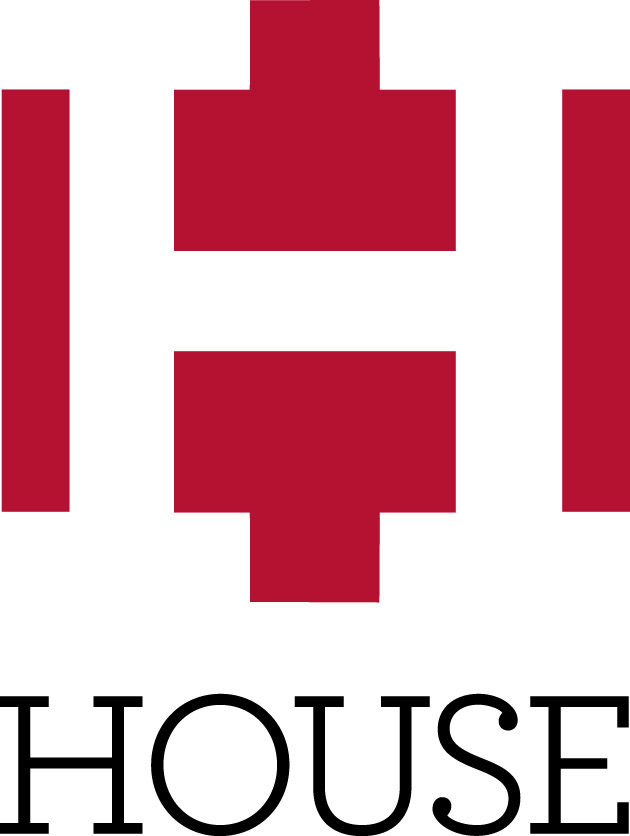EXHIBITION CANCELLED
HOUSE festival organisers are sorry to announce that due to unforeseen circumstances the artist, Sam Curtis, has been unable to realise his exhibition at Blank gallery. Instead he has given the gallery space to local trades people and organisations to set up stalls from which to promote and sell their products and services. The stallholders will be holding a series of workshops and demonstrations for the public to see what they do and learn new skills.
Although Sam Curtis will not be exhibiting he will be launching a publication that looks at broad ideas around work, space and money.
Got to the blog to find out more and see which local businesses and organisations are participating:
DOWNLOAD BOOKLET THAT ACCOMPANIES PROJECT
HEAR AN INTERVIEW ON JUICE FM ABOUT THE EVENT

Gambit Games holding a workshop at EXHIBITION CANCELLED
Text by Joanne Lee
An introductory text in a gallery usually aims to offer visitors a way ‘into’ the work on show; this might be a point from which to start their viewing, or an emergency interpretative cord that they can pull before they leave, should the show remain mystifyingly mute. Such writing normally contexualises the exhibition in some way, placing it, or the curator’s hopes for it,in relation to certain contemporary or historical ideas. But although it is intended to be informative, or even in some cases downright explanatory, very often the assumption on the part of the writer is that the audience is already informed and knowledgeable about what might be on show in a gallery. Having been asked to contribute my own take on this event, the first thing I need to confess is that I’m not at all sure who I’m writing for: although I may be addressing an art audience for whom such terms as ‘relational aesthetics’ or ‘post-autonomous practice’ trip easily and frequently off the tongue, I am also hoping that people will find themselves reading this who hadn’t previously even known there was a contemporary art gallery in North Street, Portslade, nor perhaps had much inclination to seek out such a place, whatever its location.
I need do a little of the obligatory introduction: Sam Curtis is London-based artist who had been invited to exhibit work at Blank as part of the House Festival. When the organisers were unsuccessful in achieving the funding for which they had applied, Curtis’ show could not go ahead as planned; however, being an enterprising sort, and not wanting to waste the opportunity of an empty gallery, Curtis thought laterally and, in ‘Exhibition Cancelled’, came up with another idea, one which decided to address money directly. He decided to invite local businesses from Portslade into the gallery itself, giving them the chance to display business cards and promotional material alongside an object chosen to represent their company. Artists are frequently trying to wheedle sponsorship or support in kind from commercial concerns, but here, so far as I can tell, the relationship is less demanding: all the businesses have to do is turn up and be themselves. Alongside this curious trade fair, Curtis is making a publication in which he lays out his own concerns with art and money, via discussions of his own loss-making practice and ideas of professionalism. He considers directly the minimum-wage economy within which most emerging artists find themselves scraping by, and which is the grimmer reality to fantasies of wealthy collectors buying up the contents of their studio.
I’m curious what the business people themselves will make of their role in the gallery, and indeed what visitors of different types will understand of this event. For art savvy types, will the selected objects function as ‘readymades’ of some sort? (No doubt some members of the general public will also recognise this category of art, and might recall Marcel Duchamp’s infamous urinal exhibited as a sculpture, or in more recent times, the brouhaha over Tracey Emin’s unmade bed…) The past century has also seen countless explorations involving the intersection between art and life (is anything the artist does, or exhibits, art?); between artist and audience (where some artists have become less interested in the object/image being art, and instead become excited by the relationship with an audience through conversation, participation, etc.) and those whose artistic activity is characterised as guerrilla or stealth art, where the artist’s own presence is frequently hidden (work appears in a public context without name or announcement). A knowledge of such stuff may affect the interpretative path taken by certain visitors, but for people not much concerned with contemporary art, and indeed especially for those trying to keep their heads above water in tricky financial times, all the above can seem rather close to indulgent philosophising. My job here isn’t to win anyone over, but when a lot of artists make empty claims that their work explores / examines / considers / questions / critiques (delete as appropriate) a particular issue or idea, in this case I want to assert that for me Curtis’ project is a genuine experiment: neither he, nor the business people who have agreed to participate, know what will happen. Will they generate sales, press coverage, interesting discussion, or will everyone stand around awkwardly wondering what they have got themselves into?
I’m wary of over-generalisations (in life, and in art): they so often result in us missing the most interesting things. For example, in all this banging on about art, it’s a perfectly reasonable question to ask ‘which art?’ After all, the amateur watercolourist has very different intentions than a monumental sculptor, let alone someone for whom art is a kind of activism, a form of community engagement or individual therapy. It’s rather like the term sport, used as a catch all for everything from darts to cricket or athletics to greyhound racing… And I think one can also say the same of business: the multi-billion pound turnover of certain financial institutions is an entirely different model (a different universe!) to a sole trader trying to make a living on Portslade’s Boundary Road. What interests me most about this project is the specificity: what is in the gallery is down to Curtis’ own conversations with particular local businesses, during which both parties must have felt there was something interesting enough to pursue the relationship. If I’m honest, I don’t much care whether or not some grand realisation is reached about the relationship of work and money and art: I hope that people simply talk to one another, and that as a result, all of us learn something new about our various ways of making a living and living our lives. It seems to me that that there is much to be said and a great deal to discover.
Closing Conversation: Saturday 22nd May @ 5pm
Sam Curtis, Mathew Cornford (Cornford & Cross) and Johanna Berger (BLANK) will hold an informal open conversation about the ideas behind EXHIBITION CANCELLED, at BLANK gallery.
7th - 23rd May 2010
